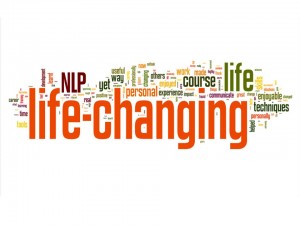
By Martin Crump.
Martin is a Director and co-founder of Evolution. He is a certified NLP Master Trainer with a wealth of experience of working with organisations of all sizes and types across the UK.
A group of Neuroscience researchers working in Parma were studying monkeys’ Motor Neurons. These particular Neurons fired whenever the monkeys reached for a peanut. They were wired up to recording equipment so that, whenever the Neurons fired, the equipment made a sound .
One morning, a scientist came into the lab and the monkey was sitting, not doing anything, just watching the peanuts. When the scientist moved a peanut, the recording equipment made the same sound as when the Monkey picked the peanut up. The monkey hadn’t moved, and the scientist was not wired into the recording equipment.
The same Neuron fired in the Monkey’s brain whether he had moved, or he had seen the same movement.
What was surprising was that this single Neuron, involved in motor planning in the monkey was also interested in the movements of others.
Some people call these Neurons “Monkey see Monkey do” Neurons, but the name which seems to have stuck is “mirror neurons” because with them, the brain seems to mirror what it sees.
Further research showed that this effect is not restricted to monkeys, it happens in humans too.
That’s why sports fans tense with the action, wince and leap. If you know the game, your neurons are firing as you watch it.
Professor Marco Iacoboni thinks that mirror neurons tie us not only to other people’s actions, but to their emotions as well.
MRI scan research showed that people reacted to ‘happy’ faces by mirroring brain activity both in the facial expression and the emotion – even if they were not physically copying the face. When they physically matched the facial expression, the feeling intensified.
In NLP we talk about matching behaviour to build rapport and develop empathy with other people. This research seems to confirm the power of this technique. It almost seems that being in rapport with someone is our ‘default’ position and being out of rapport is uncomfortable and unnatural.
If we are naturally empathic as this research suggests, do we suppress this ability, or ignore the information with people we have no rapport with? Perhaps if we really believe that rapport is important, and we relax, we will build rapport with other people naturally and easily. Perhaps also, by consciously matching and mirroring behaviour, we are allowing ourselves to become more aware of the information we usually suppress. Developing empathy with others, really understanding exactly how someone feels must help us in our interactions with them.
You can watch a 14 minute video about mirror neuron research by following this link: http://www.pbs.org/wgbh/nova/sciencenow/3204/01.html
For more information about the importance of rapport and using NLP in a work context have a look at our Business Practitioner Course or get in touch.
